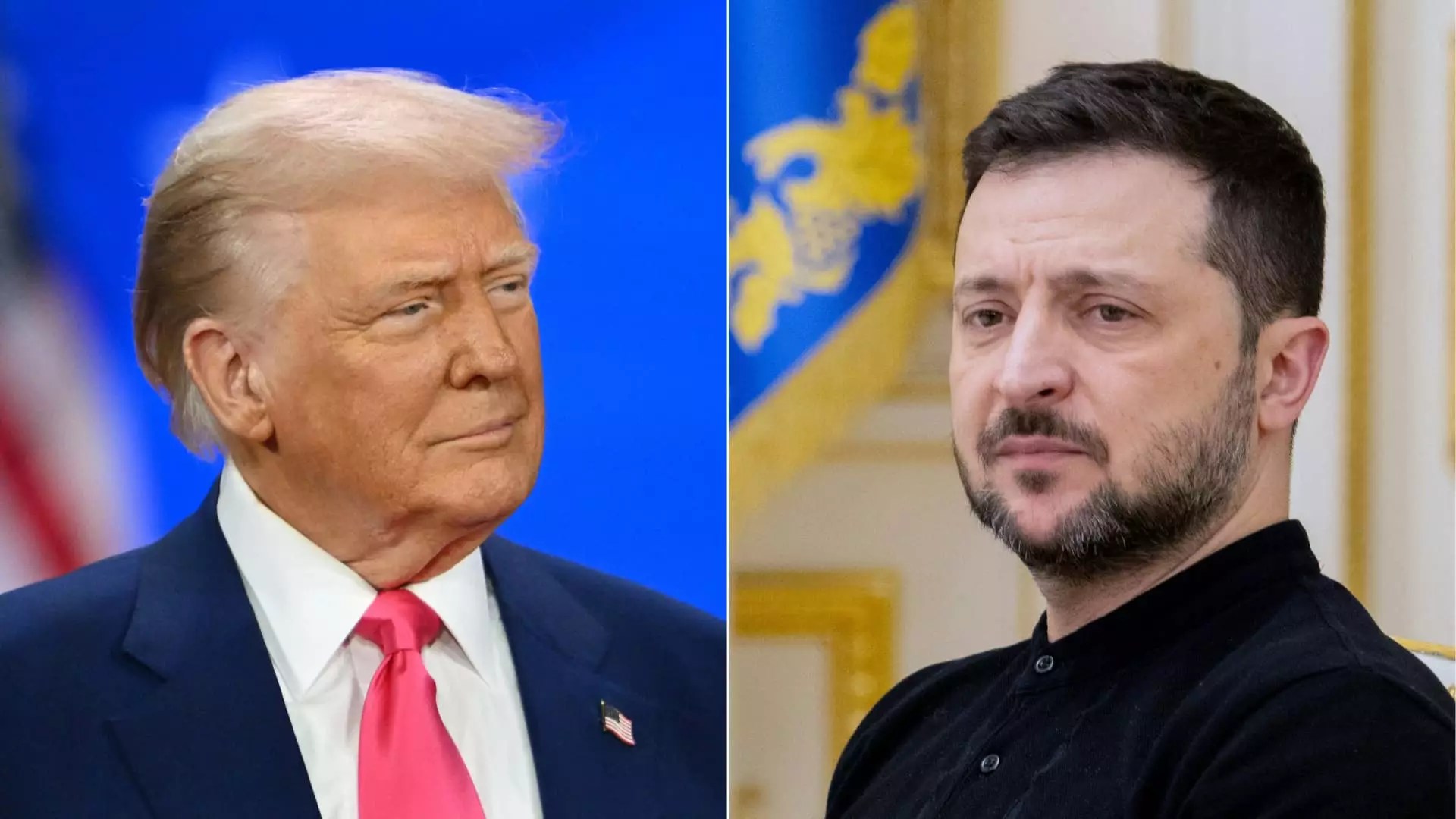In the ongoing discourse surrounding the Ukraine conflict, a troubling tendency has emerged: the simplistic attribution of blame to Ukraine’s leadership, particularly President Volodymyr Zelenskyy. Critics argue that the onus for ending the war rests squarely on Kyiv, often ignoring the complexities and historical roots that led to this crisis. This perspective not only diminishes Ukraine’s sovereign agency but also dangerously shifts focus away from the aggressive posture of Russia, which initiated the invasion under the guise of protecting alleged Russian interests. Such narratives inadvertently serve to justify Moscow’s actions, framing the Ukrainian government as the sole obstacle to peace—an insidious form of victim-blaming that undercuts the broader goal of a fair and sustainable resolution.
The emphasis on Ukraine’s supposed ability to “end the war instantly” by capitulating or making concessions oversimplifies a brutal conflict rooted in historical grievances, geopolitical strategies, and power dynamics far beyond Kyiv’s control. It’s vital to recognize that Ukraine, as a democratic nation, seeks to defend its sovereignty, territorial integrity, and democratic values—the very ideals the international community claims to support. To suggest that Kyiv could simply choose peace if only it “wanted to” dismisses the reality that Ukraine faces a much larger aggressor determined to reshape the region’s balance of power. The narrative of Ukrainian blame serves to absolve Russia of accountability and perpetuate a false binary: peace or surrender, with little regard for the complex negotiations and sacrifices involved.
Misrepresenting the Roots of the Conflict
The origins of the Ukraine crisis are often distorted in mainstream discourse, with some political figures and media outlets glossing over the aggressive expansionism of Moscow. The 2014 annexation of Crimea and Russia’s subsequent backing of separatist movements in Donbas were acts of blatant territorial conquest not prompted solely by Ukrainian actions. These moves signaled an assertive attempt by Russia to reassert influence over what it considers its geopolitical sphere of influence—a strategy that continues to threaten regional stability and global order.
Furthermore, the narrative pushed by certain global actors, including influential figures like Donald Trump, implies that Ukraine’s pursuit of NATO membership was the catalyst for Moscow’s aggression. This perspective dangerously implies that Ukraine’s sovereign decision to seek security guarantees should be blamed for provoking Russia—ignoring the fact that NATO’s eastward expansion was more about collective security than aggressive encirclement. The core issue remains Russia’s unwillingness to accept a sovereign, democratic Ukraine fully integrated into European institutions—a refusal rooted in fears of losing influence and prestige.
Additionally, the idea that Ukraine could be forced to cede its eastern territories or accept a frozen conflict neglects the importance of Ukraine’s own national security considerations. Zelenskyy’s rejection of concessions that would compromise defensive positions underscores a fundamental truth: a nation protecting its sovereignty must be prepared to stand firm against external threats, especially when appeasement risks emboldening further aggression.
International Power Dynamics and the Illusion of Neutral Mediation
The international community’s role in the Ukraine war is often portrayed as neutral arbiter working towards peace. However, closer scrutiny reveals biases and vested interests that shape these narratives. For example, statements from U.S. officials like Anthony Blinken suggesting that “if Russia stops fighting, the war ends” and “if Ukraine stops fighting, Ukraine ends” starkly reveal underlying power dynamics. These remarks imply that Ukraine’s military resistance is the primary obstacle to peace, while downplaying Russia’s extensive military operations and strategic objectives.
Meanwhile, the recent meetings involving global powers—such as Trump’s conversations with Putin and Zelenskyy—highlight the degree to which negotiations are often influenced by their interests rather than an impartial pursuit of stability. Trump’s suggestion that Ukraine should “strike a deal” and the loose proposals for a ceasefire embedded in Russian demands reveal a predisposition towards accepting Russia’s framing of the conflict. These positions, whether overt or implied, threaten to legitimize Russian territorial ambitions and push Ukraine into a corner where sovereignty becomes negotiable.
The push for concessions that would “address the root causes” of the war—such as NATO expansion—ignores the broader context. It effectively seeks to appease Russia by sacrificing Ukraine’s security assurances, a move that risks undermining the very international order it claims to uphold. This approach diminishes the agency of Ukraine and exposes a dangerous bias: prioritizing Russia’s interests over the sovereignty of an independent nation. Such policies threaten not only Ukraine but also the stability of Europe and the credibility of Western resolve.
A Call for Genuine Center-Left Leadership
True leadership in this crisis demands a nuanced understanding that condemns unchecked Russian aggression while remaining committed to diplomatic solutions rooted in fairness and respect for sovereignty. A balanced approach would reject the simplistic narratives that blame Ukraine, instead emphasizing the importance of supporting Kyiv’s right to defend itself and encouraging negotiations that do not succumb to Russia’s imperialist demands.
It’s imperative that Western policymakers recognize that peace cannot be achieved through capitulation or punitive concessions on Kyiv’s part. Instead, any sustainable resolution must be grounded in mutual respect, international law, and acknowledgment of past wrongs. This requires a shift away from the appeasement mentality that seems to dominate some conversations, and towards a pragmatic stance that supports Ukrainian sovereignty while engaging Russia in negotiations that acknowledge its responsibilities as an aggressor.
A progressive, center-leaning perspective understands that stability depends on upholding international norms and resisting the temptation to appease authoritarian ambitions. It’s about standing firm in backing democratic sovereignty, recognizing that peace built on justice and fairness is the only path forward—no matter how inconvenient that might be for those wishing to soften Russia’s aggression at the expense of Ukraine’s future.

